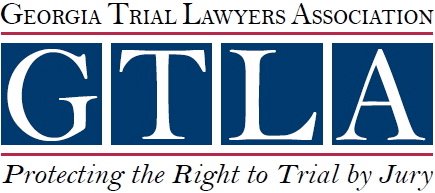Experiencing a personal injury can be a life-altering event, often resulting in physical pain, emotional distress, and financial challenges. Whether the injury occurred due to a car accident, slip and fall, or another unfortunate incident, knowing what steps to take immediately after can significantly impact your ability to recover both physically and legally. In Georgia, where personal injury laws are detailed and specific, understanding these steps is essential for protecting your rights and securing fair compensation.




Ensuring Immediate Safety and Health
The first and most crucial step after a personal injury is to ensure your safety and health. Your well-being is the top priority, and taking prompt action can prevent further harm and lay the foundation for a successful legal claim. If you are able, move to a safe location away from any immediate dangers. This may involve moving out of traffic if you were involved in a car accident or getting away from a hazardous area if you were injured on someone else’s property. In some cases, it may be safer to remain still until emergency services arrive, especially if there is a risk of exacerbating your injuries.
Once you are safe, seeking medical attention is imperative, even if your injuries seem minor at first. The adrenaline and shock that often accompany an accident can mask the severity of injuries, which may worsen over time if left untreated. A thorough medical evaluation will not only address your immediate health needs but will also create a record of your injuries, which is vital for any subsequent legal action. Be sure to follow all medical advice and attend any follow-up appointments, as this demonstrates a commitment to your recovery and can strengthen your legal case.
Documenting the Incident and Injuries
In the aftermath of a personal injury, documentation becomes a powerful tool in supporting your claim. As soon as you are able, begin collecting evidence related to the incident. This includes taking photographs of the accident scene, your injuries, and any property damage. If you were involved in a car accident, capture images of the vehicles involved, traffic signals, and any road conditions that may have contributed to the incident. Similarly, if your injury occurred on someone’s property, photograph any hazardous conditions that played a role in your injury, such as wet floors, broken stairs, or inadequate lighting.
In addition to photographic evidence, gather any other relevant information, such as contact details of witnesses and the names and badge numbers of responding law enforcement officers. If a police report was filed, obtain a copy as soon as it is available. Your medical records will also play a crucial role in your claim, so request copies of all diagnoses, treatment plans, and medical bills. Keeping a detailed record of your symptoms, pain levels, and how the injury has impacted your daily life can also be helpful in illustrating the extent of your suffering.
Reporting the Incident
After ensuring your safety and beginning the process of documentation, it is important to report the incident to the appropriate authorities or parties. If you were involved in a car accident, Georgia law requires you to report the accident to the police if there is any injury, death, or significant property damage. Failing to do so can result in legal consequences and may hinder your ability to pursue compensation. When reporting the accident, be honest and factual in your account of what happened, but avoid admitting fault or speculating about the causes of the incident.
If your injury occurred on someone else’s property, inform the property owner or manager as soon as possible. Many businesses have protocols for handling injury reports, and failing to notify them promptly may give them grounds to dispute your claim. Again, stick to the facts when reporting the incident, and make sure you obtain a copy of any incident report that is filed.
Contacting an Attorney
Once you have taken the initial steps of ensuring your health, documenting the incident, and reporting it to the necessary parties, it is time to contact an attorney who can guide you through the legal process. Georgia’s personal injury laws can be complex, and navigating them without legal assistance can be overwhelming, especially when you are recovering from an injury. An experienced personal injury attorney will be able to evaluate the specifics of your case, advise you on your legal options, and help you determine the best course of action.
One of the key benefits of working with an attorney is their ability to handle communications with insurance companies on your behalf. Insurance adjusters often seek to minimize payouts, and they may use various tactics to devalue your claim. Your attorney will protect your interests by negotiating with the insurance company and advocating for the compensation you deserve. Additionally, if your case goes to trial, your attorney will represent you in court, presenting evidence and arguments to support your claim.
Understanding Georgia’s Statute of Limitations
In Georgia, the statute of limitations for personal injury claims is typically two years from the date of the injury. This means that if you do not file a lawsuit within this time frame, you may lose your right to seek compensation. However, there are exceptions to this rule, and certain circumstances may extend or shorten the filing deadline. For example, if the injury involves a government entity or a minor, different time limits may apply.
Given the strict time limits for filing a claim, it is important to act promptly. Delaying legal action can result in the loss of evidence, fading witness memories, and other challenges that may weaken your case. By contacting an attorney soon after your injury, you can ensure that all necessary steps are taken within the required time frame.
Avoiding Common Mistakes
In the wake of a personal injury, it is easy to make mistakes that can jeopardize your ability to recover compensation. One common mistake is failing to seek medical attention right away, as this can give the impression that your injuries are not serious. Another mistake is posting about the incident on social media, which can be used against you by insurance companies or opposing attorneys. It is also important to avoid giving recorded statements to insurance adjusters without consulting your attorney, as these statements can be used to undermine your claim.
Another potential pitfall is accepting a settlement offer too quickly. Insurance companies may offer a quick payout in the hopes that you will accept it before realizing the full extent of your injuries and damages. However, these initial offers are often far lower than what you may be entitled to, and once you accept a settlement, you generally waive your right to pursue additional compensation. Your attorney can help you evaluate any settlement offers and advise you on whether they are fair given the circumstances of your case.
Hiring a Personal Injury Attorney How Long Will a Personal Injury Case Take?Related Videos
Preparing for the Legal Process
Once you have decided to pursue a personal injury claim, it is important to prepare for the legal process ahead. Your attorney will guide you through each step, but being informed about what to expect can help alleviate some of the stress associated with legal proceedings. The process typically begins with the filing of a complaint, which outlines the details of your claim and the damages you are seeking. The defendant, usually the party responsible for your injury, will then have an opportunity to respond.
Discovery is the next phase of the legal process, during which both sides gather evidence, interview witnesses, and review documents related to the case. This phase can take several months, depending on the complexity of the case and the amount of evidence involved. Your attorney will handle most of the work during this phase, but you may be asked to provide additional information or answer questions related to your injury.
After discovery, the case may proceed to mediation or settlement negotiations, where both sides attempt to reach an agreement without going to trial. If a settlement cannot be reached, the case will go to trial, where a judge or jury will decide the outcome. While most personal injury cases are settled before trial, being prepared for the possibility of a trial is important. Your attorney will represent you throughout the process, presenting evidence, questioning witnesses, and making legal arguments on your behalf.
Understanding Compensation and Damages
In a personal injury case, compensation is intended to cover the various damages you have suffered as a result of your injury. These damages can be categorized into two main types: economic and non-economic. Economic damages include tangible financial losses, such as medical bills, lost wages, and property damage. Non-economic damages, on the other hand, cover more subjective losses, such as pain and suffering, emotional distress, and loss of enjoyment of life.
In Georgia, there is no cap on the amount of economic damages you can recover in a personal injury case, meaning you can seek compensation for all the financial losses you have incurred. However, non-economic damages are subject to certain limitations, depending on the nature of the case. For example, in medical malpractice cases, non-economic damages are capped at a certain amount. Understanding the potential value of your claim and the types of damages you may be entitled to is crucial for setting realistic expectations and pursuing fair compensation.
Representative Cases
Your attorney will work with you to calculate the total value of your claim, taking into account all the damages you have suffered. This may involve consulting with medical specialists, economists, and other professionals to accurately assess the long-term impact of your injury. By presenting a well-documented and comprehensive claim, you increase your chances of securing the compensation you need to move forward.
Navigating the aftermath of a personal injury can be a challenging and overwhelming experience, especially when you are trying to recover physically and emotionally. At Princenthal, May & Wilson, LLC, we understand the difficulties you face and are here to provide the support and legal guidance you need. Our dedicated team of attorneys is committed to helping you secure the compensation you deserve, so you can focus on your recovery. If you have been injured in Georgia, do not hesitate to contact us today for a consultation. We are here to fight for your rights and help you move forward with confidence.





